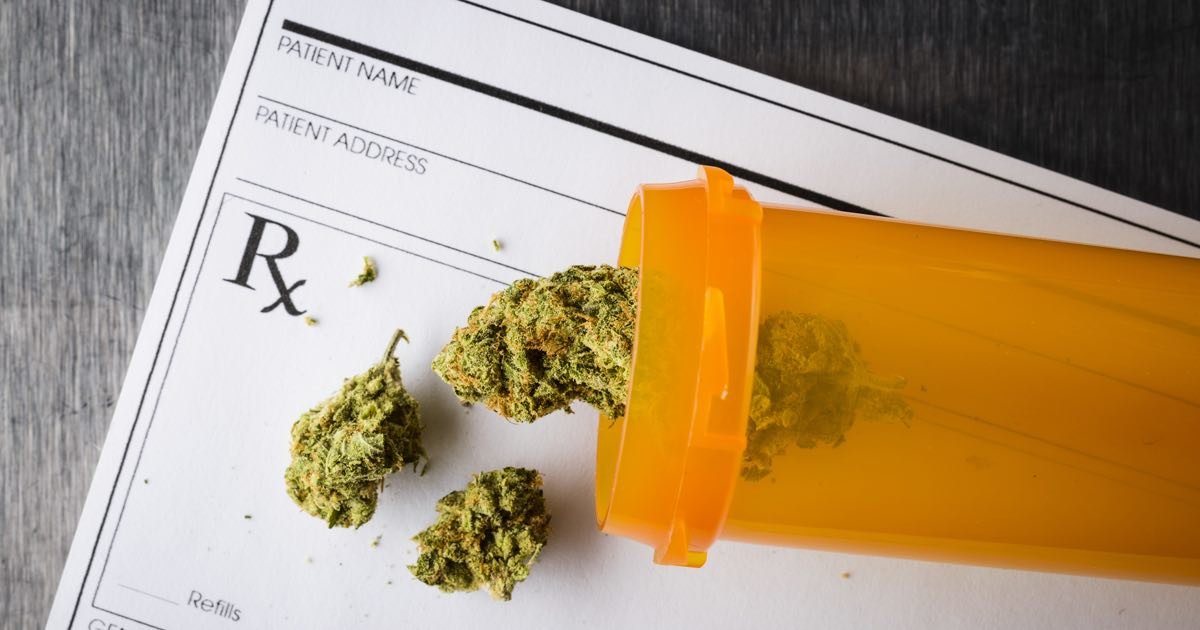Local leaders split on marijuana initiative
A push for a constitutional amendment that will legalize the distribution of medical marijuana in Mississippi was opposed by some Madison County leaders last week at a press conference last week.
According to Initiative 65, smoking and vaping marijuana would be made legal in Mississippi. Proponents argue cannabis possesses medicinal effects that can ease pain and help suffering patients relax.
Voters will be able to approve or disapprove of Initiative 65 this November.
Madison County Sheriff Randy Tucker spoke forcefully against the initiative at a press conference outside Ridgeland’s First United Methodist Church.
“I have friends on both sides of this,” he said. “I’m just here to talk about the law enforcement part. There is no medical marijuana. Marijuana is a schedule one narcotic under the laws of the state of Mississippi. The reason for this is that it has a big chance of being highly abused. There’s no regulatory oversight on how this is going to be dispensed or monitored in this Initiative 65.”
Ed Langton, director of the Mississippi Department of Health, expressed his concerns with the amendment and what it will allow citizens to do with the drug if passed.
“When marijuana is dispensed, it’ll be labeled as a treatment,” Langton said. “It is not a treatment at all. They’ll simply be selling you marijuana products.”
Another concern from Langton was that the marijuana products being called for in the amendment will work for smoking and vaping, and the drug can also be inserted into consumables such as gummy bears, brownies, or cookies.
“This means children can get their hands on this,” he said. “Parents will legally be able to certify their children getting their hands on marijuana.”
Mississippi Department of Health board member Jim Perry was just as concerned after looking more into what the drug does to your body after a lot of exposure to it.
“We learned what marijuana does to you physically and mentally,” Perry said. “It’ll be just as harmful as smoking a cigarette, which we know well by now causes significant lung damage.”
Perry hopes the state Legislature will be given more time to study and research medical marijuana to find better and effective ways to harness its medicinal properties rather than smoking or vaping it.
“Big Marijuana is trending now, just like Big Tobacco did back in the fifties and sixties,” he said. “They put up billboards advertising tobacco and said smoking was good for you. It turns out it wasn’t, and it causes lung damage. Smoking marijuana is no different. Just because it has medicinal effects doesn’t mean it’s good for you when you smoke it.”
Jamie Grantham, communications director for the Medical Marijuana Campaign for 2020, is all for legalized medical marijuana.
“I’m for this because it’s another option to help patients who are suffering from Parkinson’s Disease, cancer, or epilepsy, just to name a few,” Grantham said. “For something like Parkinson’s, the drug can calm a patient’s tremors and drastically reduce shaking.”
Grantham said medical marijuana can also help with cancer treatment if used correctly.
“The drug can help repress nausea if you smoke it, since nausea comes with cancer and edible pills or capsules won’t work,” she said. “I am a Christian and I feel that if God made the plants, and they’re used responsibly, how could you not make use of them?”
Another supporter of medical marijuana, Madison attorney Spencer Flatgard, originally drafted Initiative 65 and is a partner at Watkins and Eager Law Firm.
“We have data and proof that a lot of scenarios people are afraid of have not happened from the other 34 states that have legalized this drug,” Flatgard said. “We’re also limiting the amount you can get since we looked into other state limits and we don’t want people getting more than what they need.”
Flatgard said the usage of the drug will be in safe, controlled environments.
“People won't be able to go out in public and smoke it,” he said. “We’re also leaving a lot of discretion to the Department of Health to write regulations. Mississippi deserves a way of relief from things like cancer and PTSD, and I will not stand in the way of that.”
Ridgeland’s Marilyn Tinnin supports medical marijuana being legal in Mississippi since she’s done her research and feels it’s a better alternative to harder drugs like opioids.
“The drug will be prescribed in certain amounts, which is better. Opioids are highly addictive,” Tinnin said. “My mother had Alzheimer’s, and that caused her to struggle with anxiety. The sedatives she was given to help the anxiety turned her into a zombie and took away my chances to have a better time with her near the end.”
Tinnin wants to make sure people are vigilant and read all the data.
“You have to make sure to not just look at one side of this,” she said. “Some states have really made a mess on this because they didn’t regulate it properly. Since we’ve researched this and looked into the data from the other states, we can learn from their mistakes and know what to do and not do.”
Republican state Rep. Jill Ford of Madison spoke against the initiative.
“Initiative 65 is a very broad statement that does not contain sufficient language to establish a legitimate medical marijuana program,” she said. “Initiative 65 is silent on the amount of medical marijuana treatment centers. That term is misleading, as they include growers, harvesters, and processors of marijuana.”
“Initiative 65 does not allow cities and counties to adopt zoning and regulations for treatment centers, also referred to as pot shops.”
The voting for Initiative 65 or Alternative 65a will be on the Nov. 3 ballot. Initiative 65 is what Flatgard and proponents of medical marijuana drafted. Alternative 65a was written by the Legislature and opposes legalization.



